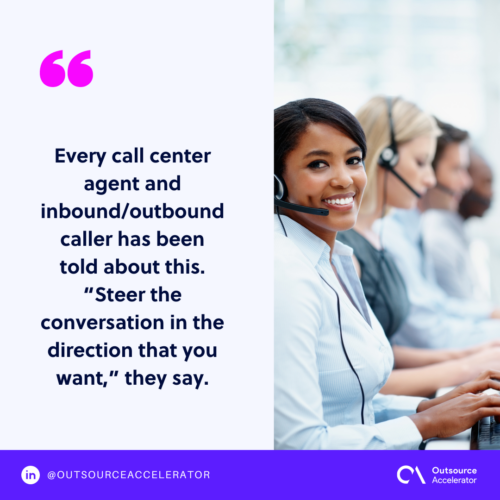Top 5 mistakes of selling over the phone (and how to avoid them)

The phone rings and you answer—it’s a telemarketing call. The person over on the other end gauges your interest in some product that you barely interacted with last week. Another time, the phone rings and you cautiously answer, it’s a person selling over the phone.
Somehow, someone thought that you were ready to purchase a product from a brand you aren’t familiar with.
These two are poor examples of selling over the phone. Let’s dissect what happened within the next few paragraphs.
Mistake #1: Going in blind without research
The telemarketer failed to do one of their responsibilities, it’s as simple as that. Usually, lead generation specialists give telemarketers a list of names with contact information and it’s their responsibility to conduct quick research.
Especially if this is a B2B scenario, wherein it’s crucial for salespeople to research who to call and who to talk to when selling a product or a fleet.
Solution: Fix it by studying
A simple Google search might suffice. Usually, for B2B telesales, it already laid all pertinent information out on the first page. On the rare occasions that it’s not (or if it’s a B2C campaign), LinkedIn is the next best bet.
Mistake #2: Glossing over the goal of the call
If a telemarketer glosses over the fact that they’re calling for a survey or for check-in and a follow-up, their prospects might chalk them up as scammers. It’s better to have a generated and straightforward spiel ready.
Solution: Steer the conversation
Every call center agent and inbound/outbound caller has been told about this. “Steer the conversation in the direction that you want,” they say. Telesales experts often train new hires on how to have the upper hand in a phone call without being too aggressive.

Mistake #3: Inactively listening
As a consumer, one of the worst plausible scenarios you can be in a selling situation is that your salesperson barely listens to you.
Maybe they’re just pushing this last sale so they can reach their quota. Maybe they’re too focused on the practiced spiel they forget to answer your questions.
They may be unconsciously doing it, but it’s an issue.
Solution: Cater to the prospects
As a salesperson (whether on-site or over the phone), active listening should be one of your top skills. Conversing with a customer, a coworker, or your boss calls for active listening.
It means that you’re processing what they are saying and you’re adding your input into the conversation.
Mistake #4: Being too pushy and aggressive
Ever had a salesperson tried to force you into buying something? It’s not a good look—not for the product, the brand, or anyone. They build the customer relationship upon pressure, control, and power tripping.
Salespeople are supposed to assist customers and clients through deciding.
Solution: Recognize the client’s needs
Contrary to popular belief, every sales interaction doesn’t have to end in a sale.
Copper.com’s Kent Holland put it eloquently, “not every lead or prospect will be interested in purchasing your product or service. This can be a hard pill to swallow, but recognizing when someone isn’t interested in speaking with you can do a lot for your credibility.
Instead of being defensive or pushy when a prospect says no, focus on positioning yourself as a qualified, helpful expert in your field.”

Mistake#5: Pushing through the customer’s objections
As a salesperson, hearing a customer say no can be hard – especially when you’ve felt that they’ve shown great interest in the product you’re showing them. Another mistake that most telesales people do is to combat the objections of their clients.
Circling back to inactively listening, when a salesperson actively dodges a client’s hesitations with spiels or upsells and upgrades, that’s already a bad look for anyone involved.
It will frustrate both parties to no end, often ending the phone conversation with a bitter taste in their mouths.
Solution: Compromise
Circumstances may arise that will influence a customer’s decision to buy. Emergencies, lack of funds, cold feet are all valid reasons a prospect can back out.
One of the best things you can do, as someone who is selling over the phone, is to listen and create a compromise.
If done right, then you might even get a repeat customer on your hands.
Why selling over the phone became a poor practice
Telemarketing and telesales weren’t as bad as other people painted it to be. It was the scammers and pushy, borderline bullies, telesales people who made the practice ‘bad.’
Talking over the phone was (and still is) one of the best ways to connect with your prospects. Sometimes, emails and newsletters just don’t cut it.
If you do not have the right resources to build your telesales team, note that you always have an option to outsource!
Booth and Partners offers tailored recruitment solutions according to your kind of sales and needs. Get a hold of experienced sales professionals to support and help meet your sales goals!







 Independent
Independent




